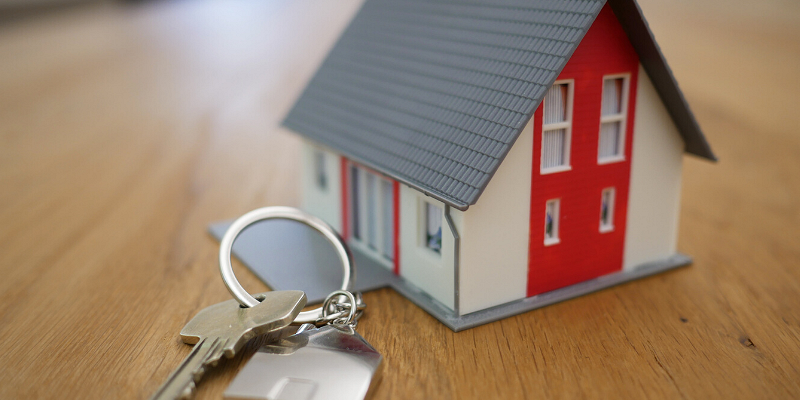How can I make my rental property more sustainable?

As a tenant, the opportunity to make your home more energy-efficient can appear impossible, especially when it comes to making big changes such as insulating the roof or even replacing large, inefficient appliances. Fortunately, even when it’s not your own property, there are ways to improve your living environment and make your home more sustainable. Check out our tips to reduce your carbon footprint and even save some money too.
Reduce, reuse, recycle
A simple starting point is to consider the amount of waste being created in your home. From recycling to composting, disposing of waste correctly, and buying only what you need, are all simple changes to make. In an increasingly consumerist society, we can often find ourselves buying more goods than necessary. Try making meals by using up what’s already in your fridge and cupboards. This has never been easier, with websites that now allow you to submit your ingredient list, generating recipe ideas for you at the click of a button. Always shop with a list to avoid unnecessary purchases and you will find yourself throwing away less food.
Additionally, instead of throwing out unloved items, try finding them a new home; selling unwanted clothes, furniture and old appliances can be done quickly through websites such as Gumtree and depop, or donate to a charity shop. Many items can now be recycled in kerbside boxes such as shoes and even old tools. If you aren’t sure, visit your local council’s website, or RecycleNow which provides advice on recycling in your area and allows you to order your own food waste caddy and recycling bins.
Quick wins on energy reduction
Inside your home, what your plugin can have a huge impact on your energy bills and your carbon footprint. By rethinking your technology, you can really make a difference to the sustainability of your rental property. Why not consider swapping out your lightbulbs for LED bulbs. Traditional light bulbs are extremely inefficient and can waste over 95% of the electricity they use by creating heat. LEDs however, can last up to 25 times longer, are both sturdier and safer than incandescent bulbs, and are better for the environment, as they are made up of non-toxic materials. Once your devices are charged, unplug them and avoid charging overnight. This is better for the device, safer and will avoid ‘trickle’ charging.
Increasing the sustainability of your rental home doesn’t have to be limited to changing our technology. There are also some cheap and easy energy-saving measures you can take as a tenant which don’t involve major changes such as draft proofing windows and doors and using thermal curtain linings. Simple actions such as turning off lights, TVs and gadgets when you aren’t in the room or adjusting your thermostat to only when you need it, will save energy and money. If you are interested in finding out more about how to choose energy-efficient products for your home, check out NI Direct.
What about water?
The earth doesn’t have an endless supply of water. By 2050, nearly 50% of the world’s population will struggle to find drinking water, so it’s crucial that we take action to reduce our water consumption. Think about taking shorter showers and fitting a more energy-efficient shower head. Today, some showerheads will use an estimated 40 litres of water during a 10-minute shower, compared to a bath which will use 80 litres. By reducing hot water usage you are also reducing energy in the form of gas or oil used to heat your water. You will also indirectly reduce energy as the water industry uses vast amounts of energy to treat and pump water to our homes.
Smaller everyday actions, such as; turning the tap off when brushing your teeth, washing small amounts of dishes rather than putting on lengthy dishwasher cycles and using the smaller flush when possible on your toilet (if it is fitted with a dual flush system), are all effective ways of being more sustainable.
Sensible shopping
When out and about, don’t forget to bring reusable shopping bags to avoid plastic bag use. Additionally, when buying online, try to avoid clothing items that contain non-biodegradable materials such as polyester, or materials such as viscose that have been chemically treated. Instead, look for natural materials such as linen which uses less water during production. Furthermore, try to shop locally as much as possible. By minimising your online shopping, you can reduce your carbon footprint - decreasing the distance products have travelled to arrive at your front door.
Start the conversation
Do you know what the energy rating of your property is? If you rent your property it must have an Energy Performance Certificate (EPC) by law. These are available to search on the Dept of Finance Website. The report details the current and potential energy use along with recommendations for improving energy performance. Consider contacting your landlord or property’s management company with some of these suggestions on how to make your home and/or building more sustainable. Perhaps this isn’t something your landlord had previously considered, but you could highlight the benefits of becoming more sustainable – reducing energy usage and cost. After all, as the saying goes, “if you don’t ask, you don’t get!”
For more advice on living more sustainably, take a look at our blog, to find out how you can reduce your water consumption and conserve energy:



